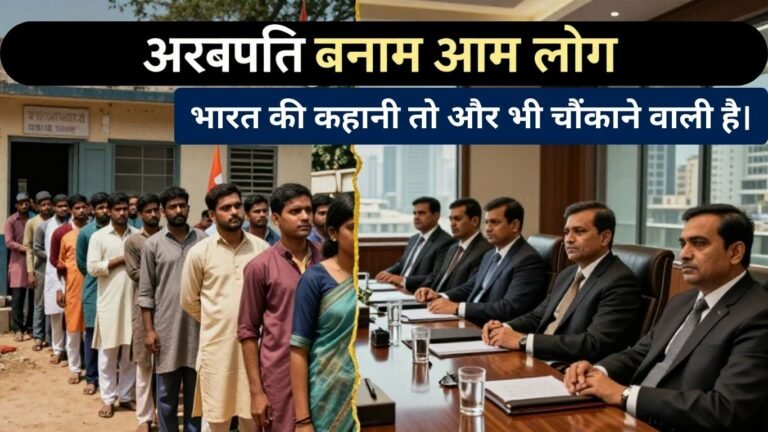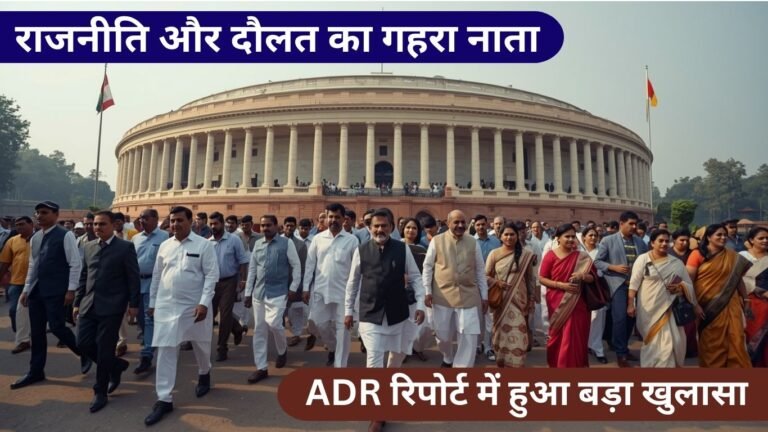The Factory of Dreams (and Despair)
It’s 5 a.m. in Kota. The room is dim. A teenager, barely 17, sits cross-legged on a thin mattress surrounded by piles of books — organic chemistry on one side, algebra on the other. Outside, the city skyline looms in the morning haze. He hasn’t slept properly in weeks. His meals are routine. His dreams — mechanical.
This is the story of millions of Indian students — mostly teenagers — caught in the high-stakes race of competitive exam preparation. In cities like Kota, Hyderabad, Patna, and Delhi, “coaching” isn’t just an after-school supplement — it’s an industry, a way of life, and increasingly, a social mandate.
But what does this race cost? Who’s paying the price? And how do we build a system where ambition doesn’t come at the cost of mental health and dignity?
The Rise of Coaching Cities: Where Aspirations Are Manufactured
Over the last two decades, entire cities have emerged as prep hubs. Kota, for instance, hosts over 2 lakh students annually, generating a multi-crore economy of hostels, mess kitchens, publishers, and tutorial giants.
For students, the structure is brutal but systematic:
- 15–16 hours/day of study
- Daily “mock” tests, often more feared than real ones
- Minimal recreation or breaks
- High peer competition, where performance is always visible
The city becomes a bubble. Inside, it’s all about ranks and cut-offs. Outside, the rest of life fades away.
The Economics of a Dream
Most aspirants come from middle- or lower-middle-class families. For many, cracking a government exam (like NEET, JEE, or UPSC) isn’t just personal — it’s generational. It represents upward mobility, pride, and stability.
But it’s expensive.
- Coaching fee: ₹1.5 – ₹3 lakh/year (some UPSC and medical prep centers go up to ₹6 lakh)
- Accommodation & food: ₹8,000 – ₹15,000/month
- Books, test series, travel: ₹20,000 – ₹50,000/year
So how do families afford it?
- Taking educational loans
- Selling land or family jewelry
- Borrowing informally
- Using retirement savings
In essence, it becomes a family investment — with the teen bearing the burden of expectations.
The Mental Health Crisis: Silent, Stigmatized, and Rising
Nowhere is the pressure more visible than in the rising suicide statistics from coaching hotspots.
According to data:
- Kota alone reported 30+ student suicides in 2023.
- Many more go undocumented under medical emergencies or mental breakdowns.
- Anxiety, depression, burnout, and panic attacks are now “normal” among aspirants.
Sadly, mental health remains taboo. In most coaching centers:
- Counselors are either absent or under-trained.
- Parents dismiss mental fatigue as “laziness” or “lack of willpower.”
- Students fear speaking up — worried it will be seen as weakness.
This toxic silence, coupled with relentless academic pressure, creates a lethal atmosphere.
A Race with No Guarantees
One of the harshest realities is this: the odds are stacked.
Take a look at these success ratios:
- UPSC: 0.2% selection rate
- NEET: ~3% in top government colleges
- JEE Advanced: ~2% out of all applicants
This means:
- For every student who succeeds, hundreds don’t.
- Many repeat the exam 2–3 times, often into their late 20s.
- Failure is not seen as a pause, but as shame — personal, social, even financial.
The emotional fallout of this is enormous. Students who once dreamed of becoming doctors, engineers, or IAS officers now face:
- Loss of self-worth
- Identity crisis
- Chronic guilt for “letting down” their families
Can Government Alternatives Bridge the Gap?
The government has made efforts to democratize access:
- SWAYAM: Offers free online video courses by IITs, NPTEL, and UPSC experts
- PM eVIDYA: Brings curriculum-based learning to students via TV channels and internet
- State-backed free coaching centers in cities like Delhi, Bhopal, and Lucknow
However, challenges persist:
- Lack of awareness among students in Tier 2/3 towns
- Poor internet access in rural areas
- Absence of mentorship, motivation, and personalized support
In contrast, big coaching institutes promise “guaranteed results,” which parents equate with “better chances.”
It’s Not Just the System — It’s Also Us
We need to ask tough questions:
- Why do we romanticize “struggle” and glorify sleepless study routines?
- Why is failure in exams seen as a failure in life?
- Why does every family want a government job, even if the child dreams otherwise?
Culturally, we’ve tied identity and respect to a narrow path of academic achievement. Until we break that mindset, even well-intentioned reforms may not reduce the psychological weight students carry.
The Way Forward: Building a Kinder System
✅ Mental Health First
Make it mandatory for all major coaching centers to have certified counselors. Normalize therapy.
✅ Transparency in Coaching
Regulate marketing claims. Publish success rates. Penalize predatory behavior.
✅ Free Mentorship Platforms
Leverage India’s growing pool of successful professionals to mentor aspirants via digital channels.
✅ Post-Exam Support
Whether a student clears or not, create paths to redirect talent — through internships, skill programs, or lateral job opportunities.
✅ Parental Counseling
Educate parents on emotional support, realistic expectations, and the need to listen — not pressure.
Conclusion: When Dreams Hurt
India’s obsession with competitive exams is not just an educational issue — it’s a cultural one. Coaching centers aren’t inherently bad. Many do excellent work. But when systems, families, and society pile pressure without support, the dream becomes a burden.
It’s time we remembered that no exam is worth a life. And no child’s self-worth should depend on a result.
Let’s build a future where our children aspire without fear, fail without shame, and grow without guilt.





